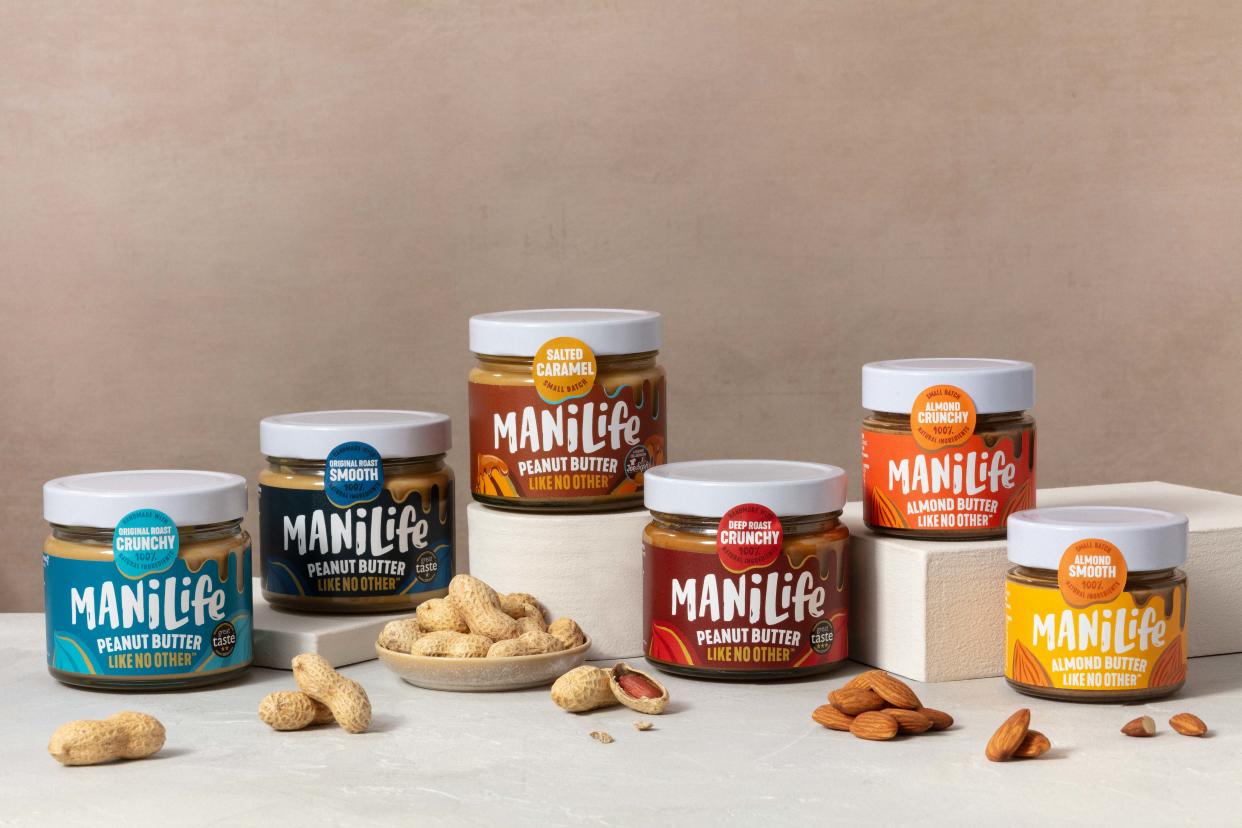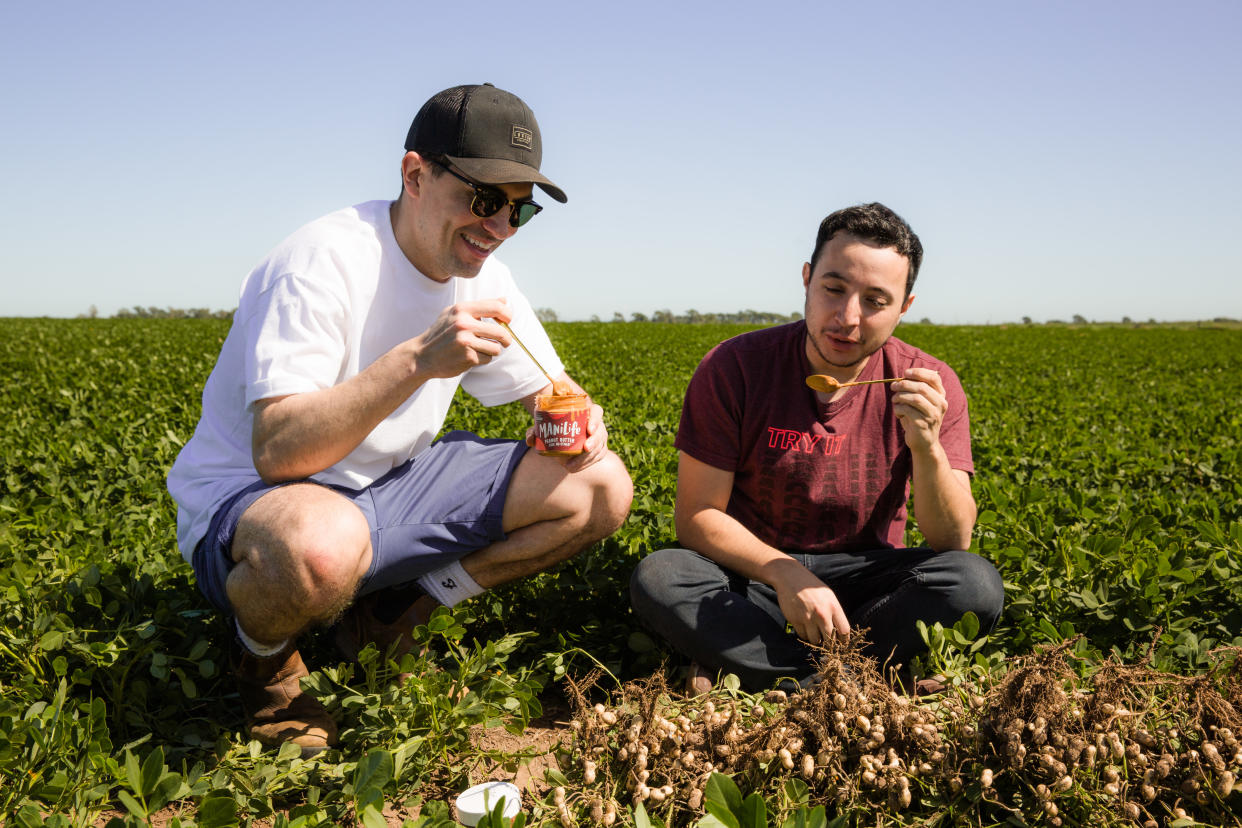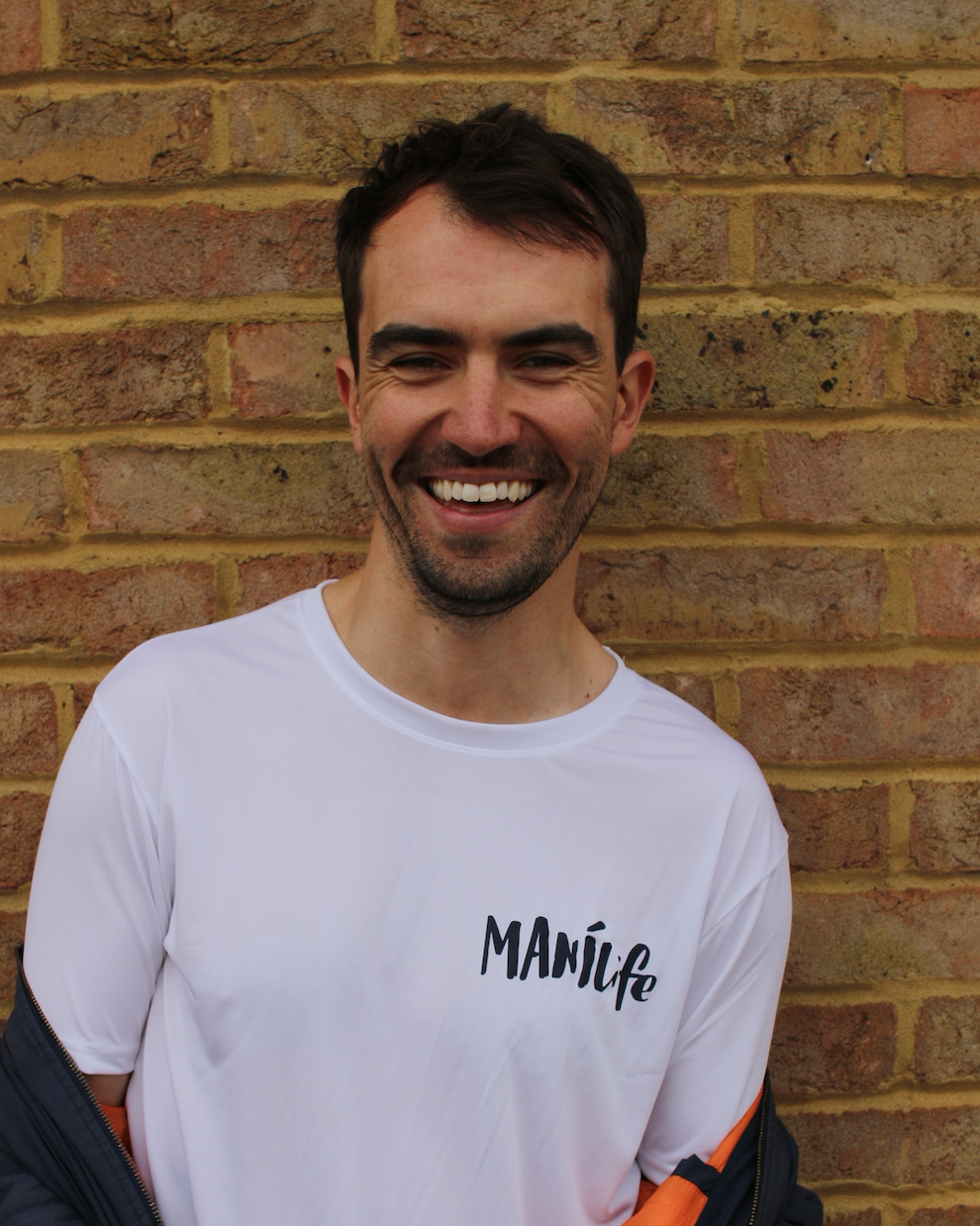'How our peanut butter brand ManiLife gained a cult following'

Founder Stu Macdonald may well be number crunching as an accountant instead of spreading the love of his fast-rising peanut butter brand.
“There is a strategy and logic that is imposed in hindsight with a lot of entrepreneurial stories,” says Macdonald, who set up ManiLife in 2016.
“At the time, it was a piece about how peanut butter in the UK was rubbish, how we talk about French wine, Colombian coffee or Belgian chocolate but peanut butter is just smooth and crunchy. For me there was an obvious link between the two. There was no market testing, we imported a ton, reacted and kept going.”
The story goes that, having been offered a job at "Big Four" accountancy firm PwC, Macdonald says he took the decision to move to Argentina and “build up enough guilt to become an accountant for three years".
Read more: 'How we launched a kombucha brand from our bedroom'
By chance, he fell into work with a peanut butter social enterprise in Argentina. “In the process I started to fall in love with the product,” he recalls. “I went round to soup kitchens teaching families and children how to use it and the nutritious benefits. It was magic.”
Macdonald started experimenting with flavours and sold jars to the expat community. He also drove to Cordoba to meet the family running the peanut estate he still sources from today. Then, looking at the market back home, he realised there was no “craft or provenance” in the peanut category.

On returning to the UK, after a stint in accountancy, he decided to set up "the world’s first provenance-led peanut butter brand" and tell the story of where the ingredients heralded from. But disaster struck when the first ton of peanuts arrived and his production partner pulled out, leaving Macdonald with 25kg bags stacked in his bedroom and no one to make it.
By hook or by crook, he pulled together over 40 friends, rented out his local rugby club kitchen and spent the summer making 4,000 jars. “We did it one jar at a time. It was hellish but formative,” muses Maconald.
The experience sowed the seeds of what the entrepreneur refers to as “getting it done at all costs”. Serendipity, adds Macdonald, has also played a large part in ManiLife’s journey.
“We transitioned from a provenance brand to making it in a way that no one had been naive enough to try,” he says, “and we discovered deep roast peanut butter by accident and overcooking the nuts.”
These flavours are now globally sold as Deep Roast and, earlier this year, its Crunchy product was voted Britain’s best peanut butter in a taste test by The Times.
Read More: Meet the 'jokers from London' who sold 100,000 blocks of butter in first 10 weeks
“People inherently understand that to get the best products you have to get the best ingredients,” says Macdonald. “Before ManiLife, peanut butter had average ingredients as there was this belief that it was just mashed up and it didn’t make a difference. We figured out that it did.”
It took six months for Macdonald’s fledgling business to sell that first ton of peanut butter. Today, the craft brand produces between 60 and 80 tonnes per month, in contrast to the mass producers of market leaders like Whole Earth, Meridian and Sun-Pat.
“As a small batch manufacturer, the challenge is that there is an element of craft and art compared to large competitors,” says Macdonald. “We have chosen to do it this way and I do think that ManiLife is the benchmark of quality.”
There have been challenges along the way. In 2018, ManiLife’s warehouse and packing sites moved in the same week that his first employee left the firm. Several tonnes of unroasted product made it through the supply chain and onto supermarket shelves.
“What that uncovered was that there weren’t the right checks to stop it happening,” admits Macdonald. “On the flip side, it taught us to introduce a degree of rigour, testing and checks.”

Macdonald has also nearly run out of funds three times and racked up £30,000 of credit card debt to keep the business afloat. Crowdfunding, however, has proved highly beneficial, with three Seedr rounds accruing over £1m.
It has attested to the brand’s support. This includes one customer who had forgotten to take a ManiLife jar in her birth kit to hospital, which Macdonald quickly Ubered a jar to. Yotam Ottolenghi, Joe Wicks and Claudia Winkelman are well-known fans of the brand, while consumers have also sent poems and paintings to the company.
“That is one of the things that keeps you going when times are tough,” says Macdonald. “The big drive for me is to make people happy.”
According to a Market Data Forecast report, the UK is the “growth engine” in the peanut butter sector, with sales in Europe rising over 10% annually. It led The New York Times to run a piece last month headlined, ‘The British have finally learned to love peanut butter’.
Read More: Meet the founder behind UK's No.1 kefir brand
“There is a significant portion of the British public who are mad for it,” says Macdonald, with ManiLife valued close to £13m and now part of a £120m category in the UK. “It’s a bit of a cult following. The long-term trend is leaning towards quality. We now aim to double our growth over the next three years.”
Behind the brand: ManiLife founder on…
Health is key as sole founder
“The business started with 45 friends who worked for nothing. We have always been a community-led brand and everyone coming together. Although I have been a sole founder and there have been challenges with that, I absolutely didn’t create this on my own.
"It wasn’t due to control or lack of trust, it was more due to compulsion and being conscious of how you show up. If you don’t look after yourself as a leader, the knock on effects are far greater than you personally. I burnt out in 2021 as I hadn’t taken a holiday in six years. I was taking it too seriously. Work expands into all spaces if you let it.”
Marketing wins
"A rocket moment was in Germany where we sent product to an amazing person called Pamela Reif. She agreed to make some content and link it back to one of our retailers there. She was an insane fan which we didn’t know about. She did minutes of videos and we sold three months of stock in seven hours. The impact of that drives the business and we are fortunate."
Watch: Peanut butter is a liquid, according to TSA
Download the Yahoo Finance app, available for Apple and Android.



